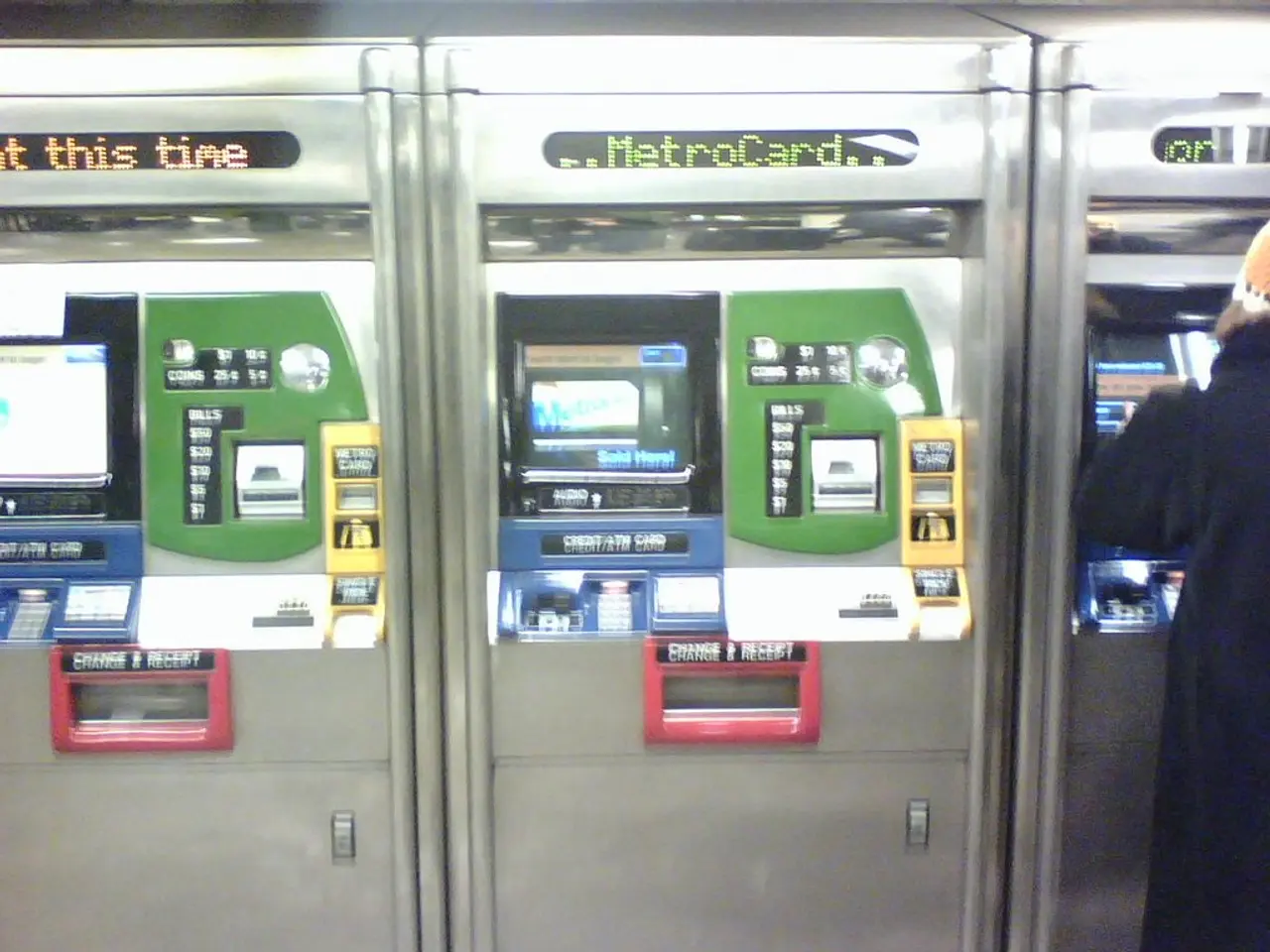Unraveling Slot Machine Jargon: Defining a 'Hand Pay' in Slot Games
In the world of casino gaming, winning big on a slot machine can be an exhilarating experience. However, understanding the tax implications of these "hand pays" is crucial for players.
**Reporting Threshold and Documentation**
As of July 2025, thanks to the One Big Beautiful Bill Act (OBBA), the reporting threshold for slot machine wins has been increased from $1,200 to $2,000. This amount will now be indexed to inflation, a change aimed at reducing administrative burdens for players, casinos, and the IRS[1]. However, there is some debate among tax professionals about whether the OBBA changed the section of the tax code governing W-2G issuance for slot machine wins[2].
**Withholding Taxes**
For domestic players, casinos are generally required to withhold 24% of the payout if the winner does not provide a Social Security Number[3]. For foreign players, 30% of the payout is typically withheld. It's essential to note that table game rules are different, with wins not subject to mandatory withholding[3].
**Claiming Gambling Losses**
You can deduct gambling losses on your federal tax return, but only up to the amount of your gambling winnings for the year, and only if you itemize deductions[3]. Proper documentation is crucial to substantiate losses.
## Summary Table: Slot Machine Hand Pay Tax Rules (2025)
| Aspect | Old Threshold (Pre-2025) | New Threshold (2025+) | Withholding Rate (no SSN) | Notes | |-----------------------|--------------------------|-----------------------|----------------------------|-----------------------------------------| | Slot Machine W-2G | $1,200 | $2,000 (indexed) | 24% | Conflicting interpretations exist[1][2] | | Table Games | N/A (self-reporting) | N/A (self-reporting) | None | No mandatory withholding[3] | | Foreign Player | N/A | N/A | 30% | For non-residents[3] | | Loss Deductions | Up to winnings | Up to winnings | N/A | Must itemize, keep records[3] |
## Practical Advice
- Keep meticulous records of both winnings and losses. - Check annually for IRS updates, as the implementation of the new threshold may evolve and interpretations may be clarified by tax authorities. - Consult a tax professional if you have substantial gambling activity, as the rules can be complex and penalties for noncompliance are significant.
The increase in the reporting threshold is a long-sought modernization by the gaming industry, recognizing that the original $1,200 figure had lost much of its real value due to inflation[1]. However, the practical impact may not be immediate or universal, given the legal ambiguity described above[2].
- Experienced slot attendants are trained to handle hand pays and get players back to gambling quickly. - There is etiquette to tip on a hand pay jackpot. - Hand pays can be a result of various issues, including machine malfunctions, server or network problems, and false jackpots. - For mechanical issues, slot machines may require a hand pay. - The cash payment will be minus state and federal taxes mandated to be taken out. - For significant wins, casinos may have policies and procedures that take longer, such as a seal check on the inner door for jackpots over a specified amount. - In the United States, the IRS requires documentation for slot, video poker, or bingo game wins of at least $1200. - Attendants and slot techs are alerted to hand pays and machine issues through handheld devices. - It is advisable to consult a tax attorney for potential ways to mitigate tax liability on gambling winnings. - False jackpots can occur due to programming errors or mechanical reels being put back in the wrong order.
In light of the One Big Beautiful Bill Act (OBBA) effective from July 2025, the reporting threshold for slot machine wins has increased from $1,200 to $2,000, indexed to inflation. While casinos are still required to withhold 24% of a payout from domestic players without a Social Security Number, there remains some debate among tax professionals regarding changes in the section of the tax code governing W-2G issuance for slot machine wins.
When exploring the world of blogs and online discussions, it is intriguing to find debates among tax professionals about the tax implications of wins from casino games like slots. These discussions often revolve around the One Big Beautiful Bill Act (OBBA) and its impact on the W-2G issuance for slot machine wins.




